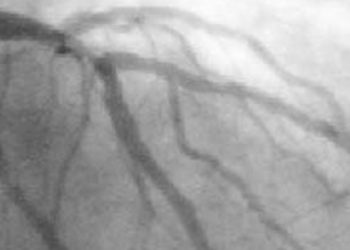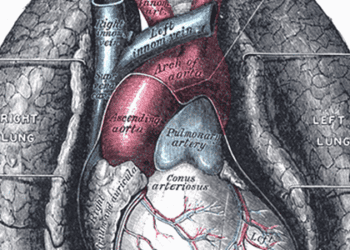Levothyroxine does not improve heart transplantation rates in brain-dead donors
1. In this randomized crossover trial, intravenous levothyroxine, given to hemodynamically unstable brain-dead potential heart donors, did not improve the heart transplant success rates compared to placebo.
2. Levothyroxine resulted in more severe hypertension and tachycardia as compared to placebo.
Evidence Rating Level: 1 (Excellent)
Study Rundown: The majority of transplanted hearts come from brain-dead donors. Less than half of potential donor hearts are fit for transplantation, which might be due to neurohormonal derangements, including thyroid hormone deficiency. This can result in cardiac dysfunction and shock. Observational evidence suggested that thyroid hormone supplementation, such as levothyroxine, increased transplantation rates of hearts and other organs. However, randomized trials evaluating the impact of levothyroxine on final utilization organs are lacking. This study was a randomized trial to assess the effects of intravenous levothyroxine on heart transplantation in hemodynamically unstable brain-dead donors. Compared to saline placebo, levothyroxine did not significantly increase the rates of heart transplantations, nor did it improve graft survival, cardiac left ventricular ejection fraction (LVEF), and overall per-donor organ utilization. However, the levothyroxine group saw more cases of severe hypertension and tachycardia. The study was potentially limited by its pragmatic unblinded design. Notwithstanding, these results came from a large representative donor population and may be generalizable to hemodynamically unstable heart donors. It was demonstrated intravenous levothyroxine did not improve the rates of heart transplants from these donors.
Click here to read the study in NEJM
In-Depth [randomized controlled trial]: The current study was a randomized trial to evaluate the use of intravenous levothyroxine in hemodynamically unstable brain-dead potential heart donors. In total, 15 organ-procurement organizations in the United States were involved and donors were eligible if their death was declared based on neurologic criteria and they were authorized for research, aged between 14 and 55 years, and hemodynamically stable. Exclusion criteria included known heart disease or receipt of thyroid hormone in the preceding month. Overall, 838 brain-dead patients were randomized within 24 hours of death declaration to receive an open-label intravenous infusion of either levothyroxine (30mg per hour for at least 12 hours) or saline placebo. Baseline-free T4 levels were measured before infusion. The primary outcomes were transplantation of the donor heart and graft survival at 30 days. Secondary outcomes included transplantation of lungs and other organs, vasopressor requirements, and echocardiographically measured LVEF. The heart transplantation rate was 54.9% in the levothyroxine group and 53.2% in the saline group (adjusted risk ratio, 1.01; 95% Confidence Interval [CI], 0.97-1.01; p=0.57). By 30 days, the graft survival rate was 97.4% for the transplanted hearts from the levothyroxine group and 95.5% from the saline group (percentage points difference, 1.9; 95% CI, -2.3-6.0; p<0.001 for noninferiority). The median number of transplanted organs was four per donor in both groups. In summary, these results provided evidence that intravenous thyroxine did not improve the rate of heart transplants from hemodynamically unstable brain-dead donors.
Image: PD
©2023 2 Minute Medicine, Inc. All rights reserved. No works may be reproduced without expressed written consent from 2 Minute Medicine, Inc. Inquire about licensing here. No article should be construed as medical advice and is not intended as such by the authors or by 2 Minute Medicine, Inc.







